Mastering Parenting in the Digital Age: A Guide to Raising Happy Kids
Mastering Parenting in the Digital Age: A Guide to Raising Happy Kids
Helping Parents Navigate the Digital World:
As parents today, it's perfectly natural to worry about our kids using digital technology. The world they're growing up in is unlike ours, which can feel a bit scary. But fear not! With some simple strategies and talking openly, we can help our kids navigate this digital world safely and happily. Let's explore everything about "parenting in digital age" in this blog.

Parents concerns:
1) Creepy people online:
The internet is cool for learning and fun stuff, but it can also be super risky. Digital parents stress about strangers reaching out to their kids and all the dangers that can come with it. My friend Sarah keeps a close eye on her daughter's online activities to prevent any sketchy interactions. She always communicates openly, checks her call records, discusses her experiences online regarding online predators, and sets clear boundaries on social media usage. Despite her vigilance, she remains constantly alert and anxious.
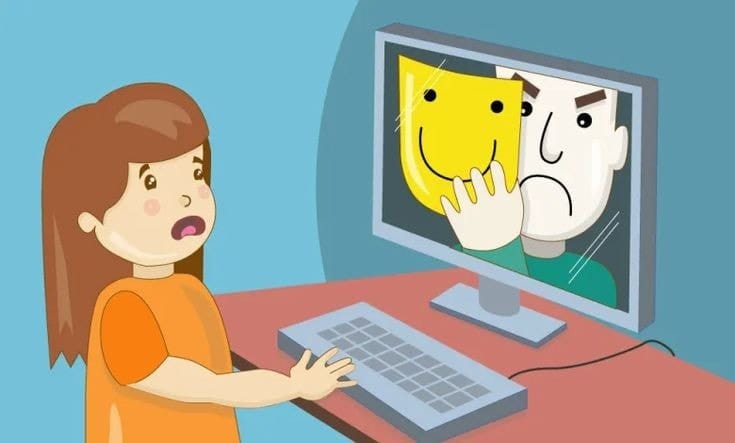
Here are 11 Best Search Engines for Kids: Protecting Young Minds Online.
2) Consuming stressful or even unsafe content:
Another big fear that digital age parents have is kids seeing stuff they shouldn't. The internet got all kinds of info, some not for young eyes. Parents in the digital age freak out about their kids coming across violent videos, adult stuff, or harmful ideas. I remember when my cousin's kid accidentally watched a scary video on YouTube, totally freaking him out. It made everyone realize how real the dangers of unsupervised internet use can be.
3) Children's Screen Time:
Then there's the worry many parents today have about their kids getting hooked on screens. Parents stress about how all that screen time can mess with their children and adult children's heads and bodies, hindering their children's development. Too much screen time can mess with how kids grow up, like making it hard for them to talk to people and causing health issues like getting too chubby. I've seen it with my neighbor's boy, always glued to his video games, forgetting about schoolwork and playing outside. His parents are always anxious about how he'll turn out and if he can't balance screen time with other important stuff.
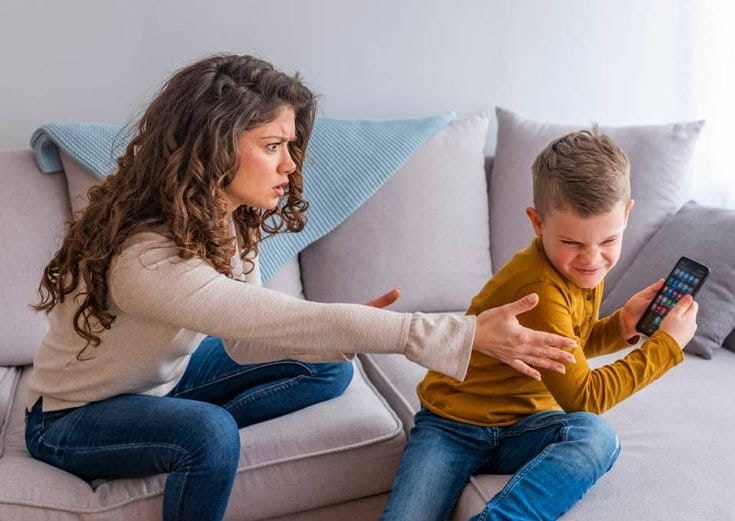
Research suggests, Excessive Screen Time in Childhood Linked to Future Problems.
Parental Monitoring Online: Ensuring Kid's Safety and Well-being:
Just like how parents keep an eye on their kids at the park or during a playdate, they gotta do the same for their online stuff. This helps make sure they're safe from things like cyberbullying, watching inappropriate content, or running into sketchy people online.
We should set some rules about which websites they can check out, who they can chat with online, and how long a child spends on the internet. By having honest talks about online safety, parents can help children understand and develop healthy habits to make the online world safer.
How social media affects the happiness and health of kids
Body Image:
The stuff we see in the media about beauty and bodies can really mess with how kids see themselves and others. When they see famous folks or models looking a certain way, it can make them feel like they gotta look like that too. This can make them feel all unsure about themselves or even try wacky diets or stuff to fit in.
Picture a young child watching a superhero movie where the hero, let's say Spider-Man, seems flawless and brave on the screen. But in real life, we all know that actors like Tom Holland, who plays Spider-Man, are actual individuals with their own challenges and imperfections. Parents can discuss with their children that what they see in movies is often scripted and edited to create a certain image. This conversation can help children differentiate between entertainment and reality, while also reinforcing the idea that everyone, including themselves, has unique qualities and worth.

Mental health:
Social media platforms often show this perfect version of life, where people only share their best moments, achievements, and looks. For kids, seeing these polished feeds all the time can make them have these unrealistic expectations and start comparing themselves to others. This thing called "social comparison" can make them feel like they're not good enough, anxious, or even sad. Kids might start thinking their own lives are less cool or successful when they see what's online, which can really mess with how they feel about themselves and their happiness.
Plus, social media has this thing where it gives you a little rush of happiness (thanks to dopamine) when you get likes, comments, or more followers. This can make kids keep wanting more and more of that online approval, creating this cycle where they seek validation online. Depending too much on likes and comments can make kids feel like their worth is tied to these online numbers instead of real-life stuff like achievements and relationships. It's a tricky balance for sure!
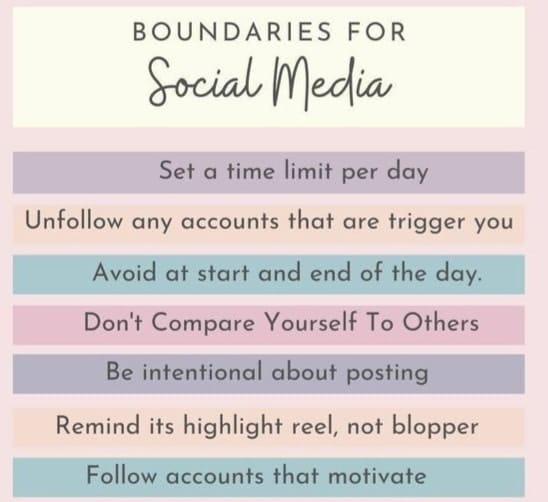
Cyberbullying:
Cyberbullying is a big deal on social media, where kids can face mean comments, scary stuff, or being left out by others. It's not like the old-school bullying because this cyberbullying can happen all day, every day, and lots of people can see it in a snap, making it hard for kids to get away from it or feel better. Cyberbullies can use all sorts of ways like spreading rumors, sharing embarrassing stuff, or sending mean messages without showing who they are.
The fact that bullies can hide behind a screen and not face consequences online can make them even meaner, making things worse for the ones being bullied. Kids who go through cyberbullying can feel really bad about themselves, get anxious, sad, or in really serious cases, even think about hurting themselves. It's really crucial for parents and teachers to stay tuned into what kids are up to online, have open chats about their online adventures, and step in fast if they suspect cyberbullying.
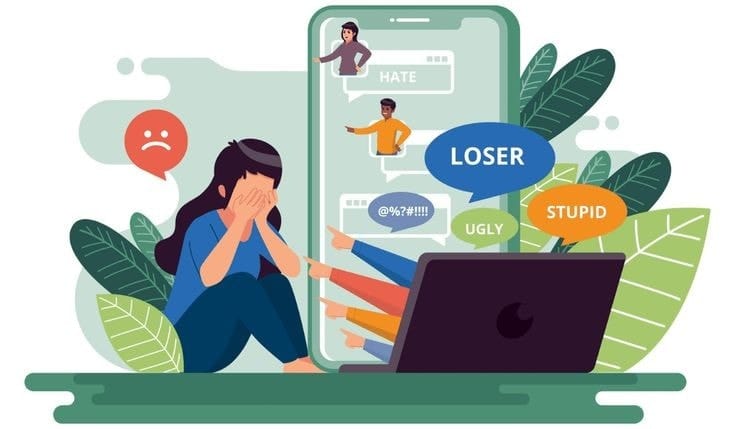
Ifyou ever feel a bit off about your online safety, you can get help by calling your country's helpline. If there's no helpline around, it's super important to talk to a grown-up you trust right away. Your safety is top priority!
Steps to Set Healthy Digital Habits for Kids
1) Remember to keep an eye on the time you spend on your devices. Try to use tech for cool stuff like learning, creating, or chatting with friends instead of just endlessly scrolling.
2) Don't forget to take regular breaks from screens. Rest your eyes, stretch a bit, and get moving to counteract the not-so-great effects of staring at screens for too long.
3) Parents should stay actively involved to know what their kids are doing online. It's not about spying, but more about showing interest. For instance, if your child likes watching YouTube, try watching with them occasionally. This way, you can talk about what videos are okay and which ones might not be.
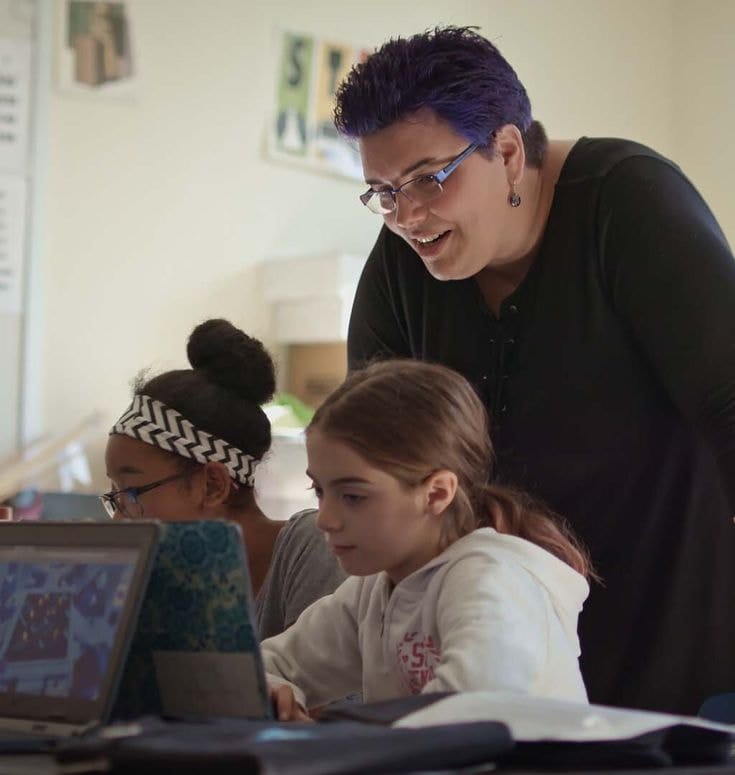
4) Specially, when kids play games online, they meet a lot of different strangers, few with bad intentions might send messages asking many children for personal info like where they live or go to school. Make sure you know your child's online friends. Understand who your child's online activities and they're chatting with and playing games with. It's important that these friends are either people your child knows in real life or people you've approved of.
5) When it comes to online safety, be smart about it. Use strong passwords, be careful with your personal info, and stay updated on the latest security stuff to keep your online identity safe and sound.
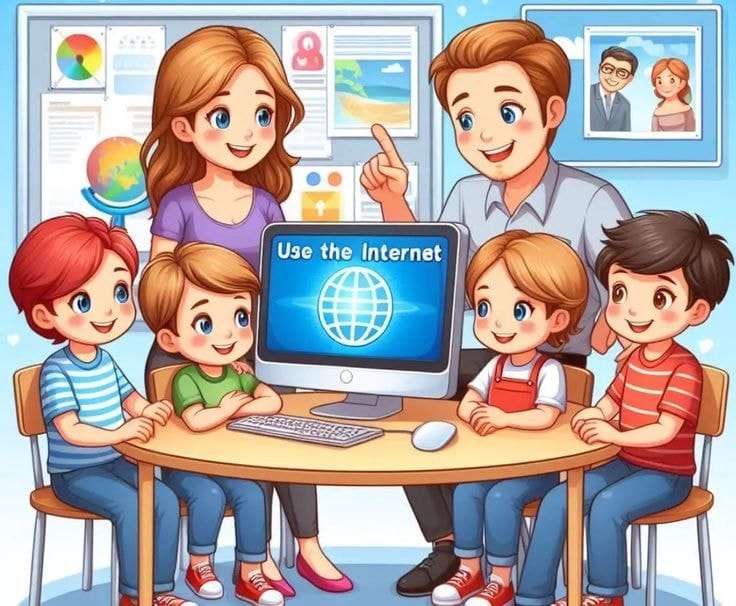
How to Ensure Cybersecurity for Children
1) Make sure to keep all your gadgets up to date by installing the latest updates. This helps keep your devices secure and protected from cyber baddies.
2) Always set up strong passwords for your Wi-Fi to keep your internet connection safe from unwanted guests. It's like locking the door to your internet house!
3) Think about signing up your kids for fun cybersecurity workshops or online classes made just for them. They'll learn cool stuff to stay safe while having a blast.
4) Show your kids how to use two-factor authentication to add an extra shield to their accounts. It's like having a secret code on top of their password to keep the bad guys out.
5) Get to Know COPPA
COPPA is like a rulebook that tells websites and apps meant for kids under 13 how to keep their info safe. It's all about making sure parents say it's okay before collecting any personal stuff from kids. Check out COPPA to make sure your child's secrets stay safe online. Dive into more details about COPPA here.
6) Discover PIPEDA in Canada
If you're up north in Canada, understanding PIPEDA is key. It's the law that tells companies how to handle personal info, including kids' data. Get the scoop on PIPEDA right here.
By following these simple tips and understanding laws like COPPA and PIPEDA, you can help keep your little ones secure and their private stuff protected online.
Hey kids, check out this awesome video on YouTube to learn how to use technology responsibly!
Implement parental controls, set age-appropriate filters, and discuss potential dangers.
Keep an eye on what your kiddo is up to online, you can totally use parental control apps and tech to help out. A bunch of gadgets and apps have these cool parental controls that are super simple to set up.
For instance, you can set up these controls on your child's tablet to make sure they only check out stuff that's right for their age. You can create screen free times and can even limit how much screen time they get each day.
Filters are also handy to stop them from stumbling onto stuff that's not for their eyes. Like, Google SafeSearch can filter out any iffy or inappropriate content from search results. Plus, lots of streaming services have these kids' profiles that only show them child-friendly stuff.
Encourage your child to participate in digital citizenship programs at school or online. These programs teach children about responsible online behavior and make children develop healthy digital literacy.
Tips for Managing Screen Time:
When kids of young age get super hooked on tech stuff, parents concerns it can make them rely too much on gadgets for fun and chatting with pals. They might end up choosing screens over playing outdoors, reading, or hanging out with loved ones.
Digital addiction can affect your child's life, their body, social skills, and feelings.
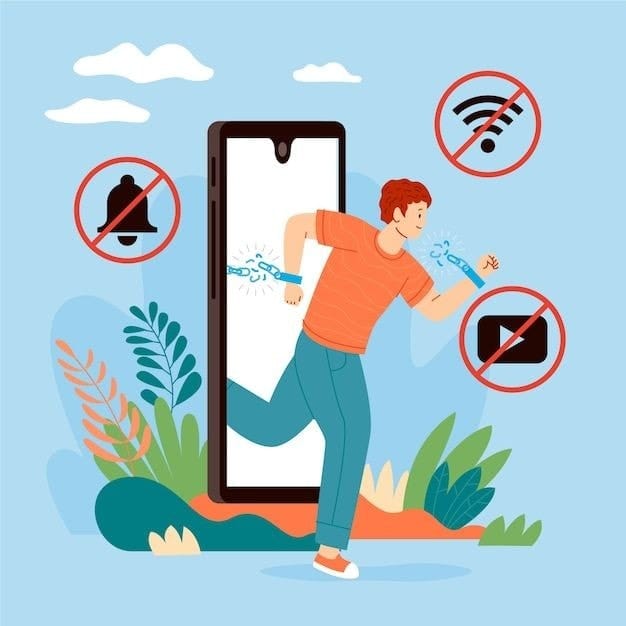
To address this issue, here are some effective solutions:
Face-to-Face interactions:
When kids get to hang out in person, it's like a big win for their social skills and relationships. By setting up playdates, suggesting team sports or clubs, and making sure they spend time with friends and family without screens, you're helping them grow in a super cool way.
Family Outings:
Having those family outings is not just about fun; it's a great way to bond and take a breather from all the tech stuff. Whether it's a walk in the park, a museum visit, a picnic, or any outdoor activity, these moments bring the family closer and show a whole new world beyond screens.

Technology-Free activities:
Diving into activities that don't need screens, like drawing, reading, board games, or cooking together, is a fantastic way to show kids the joy beyond technology. Parents focus should be on finding that balance and making life more exciting and varied for them.

Encourage Creative Play:
And hey, sparking their imagination with creative play like building stuff, pretending, or getting crafty can really boost their creativity and problem-solving skills in a fun way that doesn't involve screens.
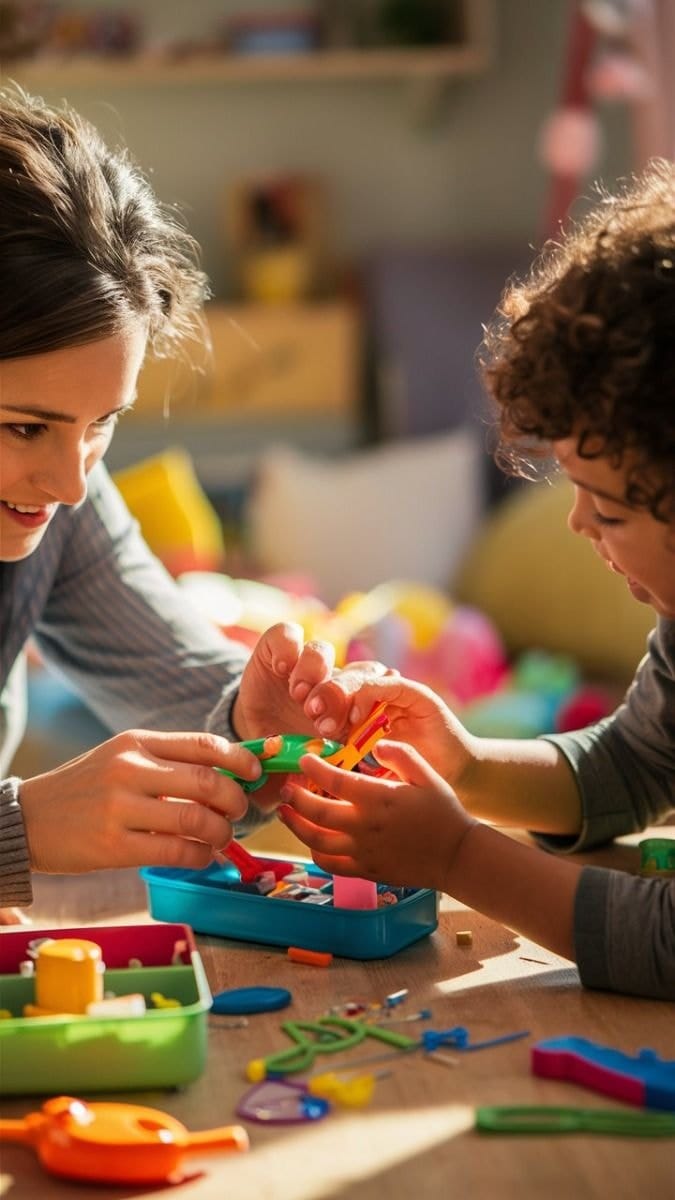
Tokens:
Setting up a system where the kids earn tokens for doing chores, reading, or being active? They can trade these tokens for screen time, helping them find a good balance between tech and other fun stuff.
Lead by Example: Show kids the importance of balancing screen time by being a good role model.
As parents, we contribute to this by often being addicted to these devices ourselves and easily passing them on to our children. Isn't it interesting how children quickly learn from our behaviors? So, when you cut back on your own screen time, you're showing them a great way to balance things.
Let them see a good example, that life's full of fun stuff beyond screens. Dive into family activities together, like whipping up a meal, playing a board game, or just chatting about how your day went. It's all about making those shared moments count!
Staying Mindful and Keeping a Healthy Mind in the Digital Age
Making time for a "quiet time" each evening is a great idea. It's a chance for everyone in the family to unwind and reflect on their day for about 10 minutes. During this time, you can chat with your kids about how they felt after using their devices. Did it make them happy, relaxed, or maybe a bit tired and grumpy? This helps them see how screen time can affect their emotions.
Encouraging mindfulness is all about helping children understand their thoughts and feelings. When they're self-aware, they start to see how activities like using digital stuff can impact how they feel and act.
Teach stress-relief techniques and create tech-free zones or times within the home.
Making a tech-free zone in your home, like the dining area, can be super helpful. You could also pick tech-free times, like during meals or an hour before bedtime. Instead of screens, try out stress-relief stuff together, like deep breathing, stretching, or reading a cool book. Stress-busting tricks, such as deep breathing or yoga, are awesome for kids to chill out and handle their feelings without always turning to screens.

Maximizing the Benefits of Digital Learning
Digital tools have totally changed how kids learn and grow.
Here are some awesome tools parents who are raising children can make use of:
For the little ones (children ages 3-6):
- ABC Kids- Tracing & Phonics app for letters and phonics.
- Tinkercad for 3D design and modeling.
For kids (children ages 7-11):
- Khan Academy for educational videos and exercises.
- Codeyoung.com for interactive coding lessons.
- Prodigy Math for math skills practice.
For older child (children ages 8-12):
- Duolingo for language learning.
- Scratch for coding basics.
- Mystery Science for engaging science lessons.
Other great, entertainment or learning tools include GetEpic(books and reading), PBS Kids (educational games and videos), etc. They offer structured learning experiences and quality content that kids love.
It's super cool to mix online learning with hands-on fun for kids:
Pick out educational apps and websites that suit your child's age, like National Geographic Kids and Khan Academy Kids, and team them up with real-world activities.
After checking out National Geographic Kids, think about heading to a nearby zoo or aquarium to see them up close.
Nature walks to explore plants and animals and art projects can also ignite curiosity and creativity in kids.
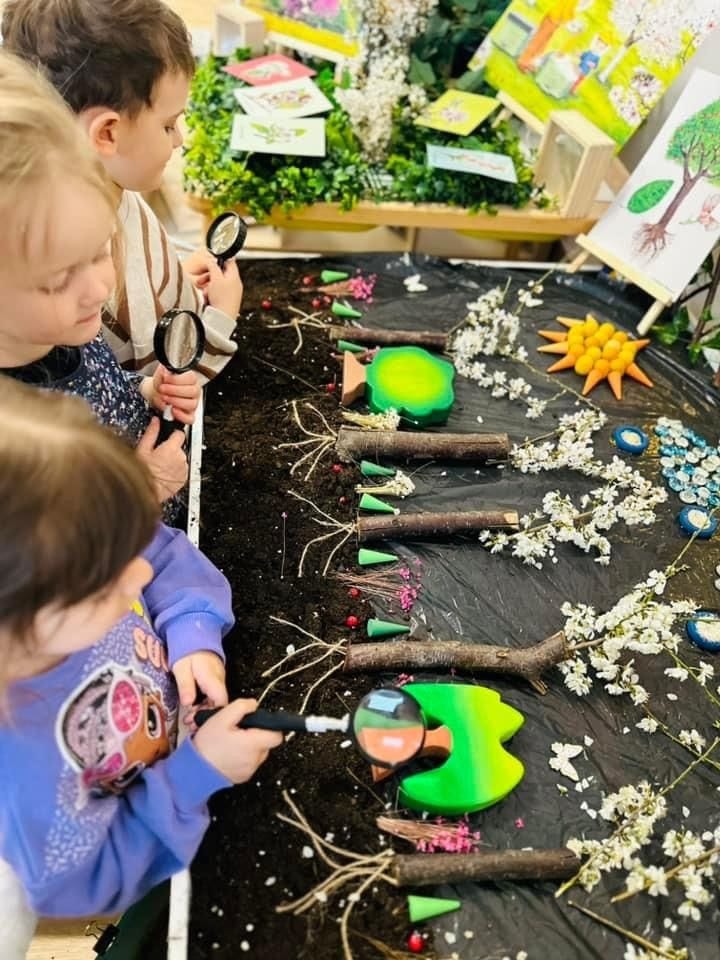
You can also practice math by measuring ingredients while baking after doing exercises on Khan Academy Kids.
Plus, try out simple science experiments at home with a STEM kit once you've learned science concepts online.
Don't forget, going to libraries for actual books and joining storytelling sessions can grow a love for reading.
Finding a balance between online entertainment, digital technologies, and offline adventures is key to a well-rounded learning journey.

More: Visiting museums, scavenger hunt in your backyard, stargazing, etc
How Codeyoung Can Help
At Codeyoung, we're all about helping kids and adult children learn cool coding skills in a safe online space. We think it's awesome to use tech to boost learning! Imagine if your kiddo is super into gaming. With our courses, they can actually make their own games and mods. It's not just fun; it's turning their love for games into a skill-building adventure. Plus, it's teaching them how to be responsible with tech. How cool is that?
Balanced Approach:
By combining screen-based learning with offline activities, kids get the best of both worlds. When they finish a coding module online, they can then take that knowledge and put it into action by creating something tangible offline. This hands-on experience not only reinforces what they've learned but also sparks creativity and problem-solving skills in a real-world context. So, whether it's building a robot, crafting a game, or exploring a science experiment, these offline activities complement their online learning, making the whole learning process more engaging and rewarding!
We invite you to explore our community, where you can view the projects created by our talented students.
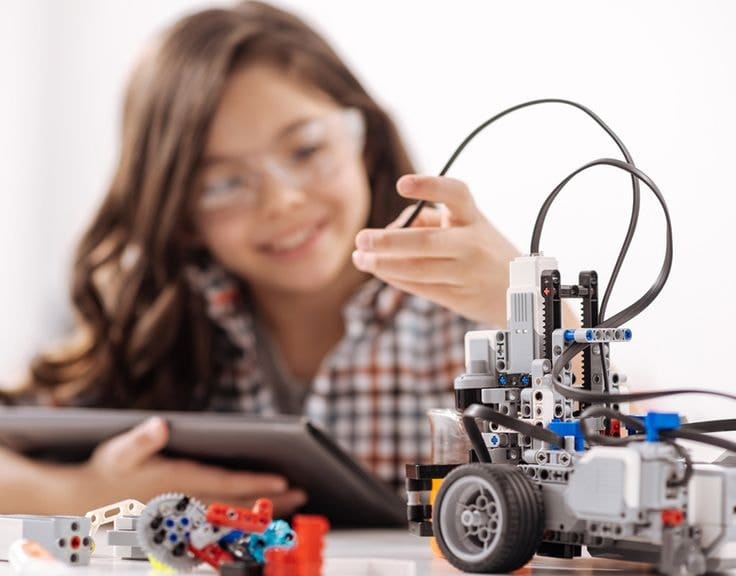
Expert Guidance:
When we talk about expert guidance, we're referring to instructors who really know their stuff. These instructors are like mentors, guiding kids through the digital world with care and support. They're there to provide personalized tips to help children, so that children not only learn effectively but also understand how to be responsible and safe online. It's all about having someone by your side, just like a soccer coach guides their team and our instructors are there to help students navigate coding challenges and emphasize the importance of online safety. It's like having a trusted ally in the digital realm!
Community and Support:
At Codeyoung, we're like a big family, not just a place to learn. We're here to support both parents and kids, providing helpful resources and tips to help everyone manage their kids digital devices and time wisely. Plus, we're all about creating a positive vibe within our community, so it's a win-win for everyone!
We invite you to book a free demo with us! We offer a wide range of courses tailored for different age groups. Our programs excel in teaching students coding, math, English, and science. In coding, we provide instruction in web development, Scratch, robotics, app development, machine learning, and much more, all with a focus on digital safety.
Don't miss this opportunity to explore our courses—book your demo now!
Conclusion: Raising Children in the Digital Age:
When it comes to raising children in this tech-filled world, there's a lot to think about, right? By setting clear rules, ensuring their online safety, and guiding them toward activities off screens, using parental control apps, digital platforms play a huge role in helping children develop healthy digital habits and form a strong bond with technology. It's also crucial to stay updated on online trends and have those meaningful conversations with our kids to help them navigate their digital journey smoothly.
FAQs
How has technology impacted parenting?
Technology has really changed how families connect these days. It's cool that parents can chat with their kids instantly and see them on video calls, giving them peace of mind. But, being on screens too much can sometimes take away from those real heart-to-heart talks and fun family time.
Does technology make parenting harder?
Sometimes, parents get caught up in their phones or gadgets, which can make them not notice what their kids need. This can make children feel neglected and increase anxiety in them.
Why can parenting in the digital world be challenging?
The digital world brings new challenges for parents, especially when it comes to how much time their kids spend on screens. Being on devices too long can cause problems like trouble sleeping, less exercise, and trouble focusing. It's important for parents to figure out a good mix of screen time and fun stuff away from screens.
What is cyber parenting?
Cyber parenting is all about figuring out how to help and look out for kids in the online world. It means knowing the dangers out there like cyberbullying and seeing things that aren't right for them. It's all about showing kids how to use tech in a safe and smart way.
Comments
Your comment has been submitted